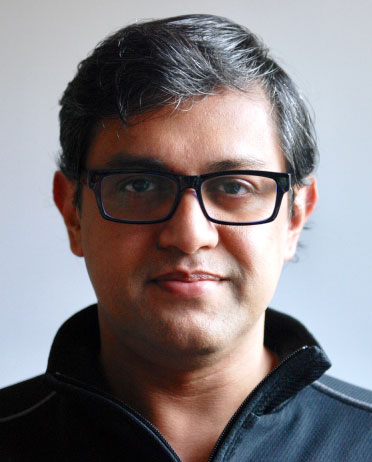What AI Leaders Say About the Industry's Future
The Frameworks course provides students in Northwestern Engineering's Master of Science in Artificial Intelligence (MSAI) program with unfiltered access to an array of thought leaders to discuss the applications and potential of artificial intelligence.
 If you want to learn about a rapidly evolving field like artificial intelligence (AI), reading about it in a textbook can only take you so far. To understand not just the fundamentals but the applications and future of the industry, it's important to hear from researchers and innovators who are implementing the technology and considering its larger potential.
If you want to learn about a rapidly evolving field like artificial intelligence (AI), reading about it in a textbook can only take you so far. To understand not just the fundamentals but the applications and future of the industry, it's important to hear from researchers and innovators who are implementing the technology and considering its larger potential.
That is the basis for Frameworks for Artificial Intelligence, a unique speaker series that helps students in Northwestern Engineering's Master of Science in Artificial Intelligence (MSAI) program explore the latest challenges in the theory, practice, and implications of AI in the modern world. The goal is to provide a foundation for the challenges and opportunities facing the field.
"The notion here is that if we stayed completely on the practical side, students would have a good idea about businesses but less of a notion about where the field is going," MSAI director Kris Hammond said. "If we stayed fully on the research side, students would go out in the world, and while they'd have knowledge about wonderful research, it wouldn't necessarily be ready to be applied. We're trying to thread the needle and find that balance between the two."
Hammond facilitated conversations with a robust list of speakers for students to learn from and interact with. Hammond interviewed each guest and then provided students with the opportunity to ask questions of their own.
"There are valuable perspectives that the industry leaders bring that are rarely possible to glean otherwise," MSAI deputy director Mohammed Alam said, "which is why I think access to industry leaders in Frameworks is such a valuable opportunity for MSAI students."
Recent guest speakers included thought leaders from Deloitte, Sony, McKinsey & Company, Thomson Reuters, and JP Morgan Chase. David Ferrucci, the principal investigator for the IBM Watson computer system that defeated the highest-ranked Jeopardy! champions, was a guest speaker. Hammond also invited a collection of researchers from across Northwestern University who dedicate time and energy to research AI's implementation and potential in an array of fields, from law and medicine to finance and journalism.
Each guest speaker touched on AI's application in their field or company, questions they have about future implementations, and their thoughts on current challenges and opportunities facing the industry. That exposure and transparency helps students think more broadly about the field and how they can use their own backgrounds and ideas to help continue to move the field forward.
"From what students read about businesses and organizations in books and magazines and online, they can paint a picture of what it must be like in the industry," Alam said. "It turns out that first-hand experiences from our guest speakers can often paint somewhat of a different picture.
"It's one thing to sit in a class and learn about a field. It's a different thing to learn about what the field looks like in the real world."

